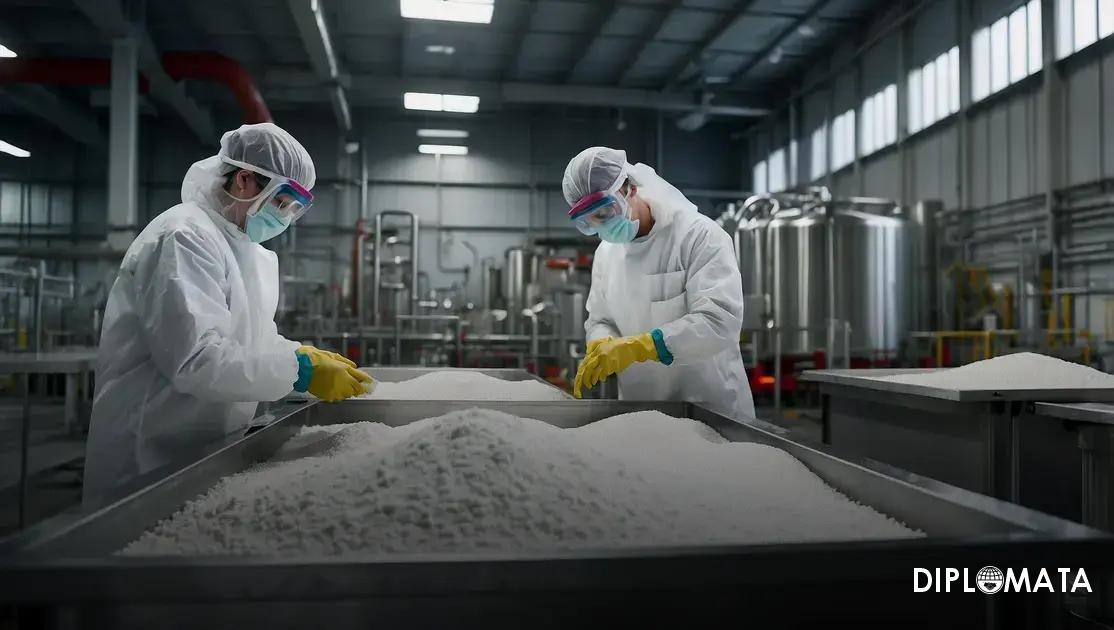Understanding Palm Oil Supply Contracts
A palm oil supply contract is a legally binding agreement between a buyer and a seller, stipulating the terms and conditions under which palm oil is supplied. These contracts are crucial for establishing clear expectations, pricing, delivery schedules, and quality specifications. They serve as a framework for the commercial exchange of palm oil, especially in the context of international trade.
Importance of Palm Oil in Global Markets
Palm oil is one of the most widely used vegetable oils globally, found in a plethora of food products, cosmetics, and biofuels. Its significance in the market is underscored by the growing demand from countries like the United States, which imports substantial quantities of palm oil from Brazil. Understanding the dynamics of supply contracts is essential for stakeholders looking to navigate this lucrative market.
DIPLOMATA’s Role in Palm Oil Supply
DIPLOMATA stands out as a premier supplier and exporter of palm oil from Brazil to the United States. With a commitment to quality and reliability, DIPLOMATA offers three distinct grades of palm oil: crude, bleached, and refined. Each grade serves different market needs, allowing clients to select products that align with their specific requirements and standards.
Types of Palm Oil Offered
The three grades of palm oil available through DIPLOMATA include crude palm oil, which is unrefined and retains its natural properties; bleached palm oil, which has undergone treatment to remove impurities and color; and refined palm oil, which is processed to achieve a neutral taste and high stability for various applications. Each grade has unique characteristics that cater to different sectors of the industry.
Contractual Terms in Palm Oil Supply
When entering into a palm oil supply contract, several key terms must be established, including pricing mechanisms, payment terms, delivery schedules, and quality assurances. Contracts may also include clauses related to sustainability and ethical sourcing, which are increasingly important to buyers, particularly in markets like the U.S. that value responsible sourcing practices.
Logistics and Distribution Considerations
The logistics of palm oil distribution are critical to the success of supply contracts. DIPLOMATA ensures a robust distribution network that guarantees timely delivery across the United States. Effective logistics management minimizes delays and ensures that clients receive their orders in optimal condition, maintaining the integrity of the palm oil products.
Quality Assurance in Palm Oil Supply Contracts
Quality assurance is a fundamental aspect of any palm oil supply contract. DIPLOMATA adheres to stringent quality control measures to ensure that all grades of palm oil meet international standards. This commitment to quality not only satisfies regulatory requirements but also builds trust with clients who rely on the consistency of the product.
Compliance with Regulatory Standards
Compliance with both Brazilian and U.S. regulations is essential for palm oil supply contracts. DIPLOMATA is well-versed in the necessary legal frameworks, ensuring that all products are compliant with safety and quality standards. This adherence to regulations protects both the supplier and the buyer, fostering a transparent and secure trading environment.
Negotiating Palm Oil Supply Contracts
Negotiation is a crucial phase in finalizing palm oil supply contracts. Both parties must understand their needs, market conditions, and pricing trends. DIPLOMATA’s experienced team is equipped to facilitate negotiations that are beneficial for both sides, ensuring that contracts reflect fair terms while also addressing the strategic goals of the business.


